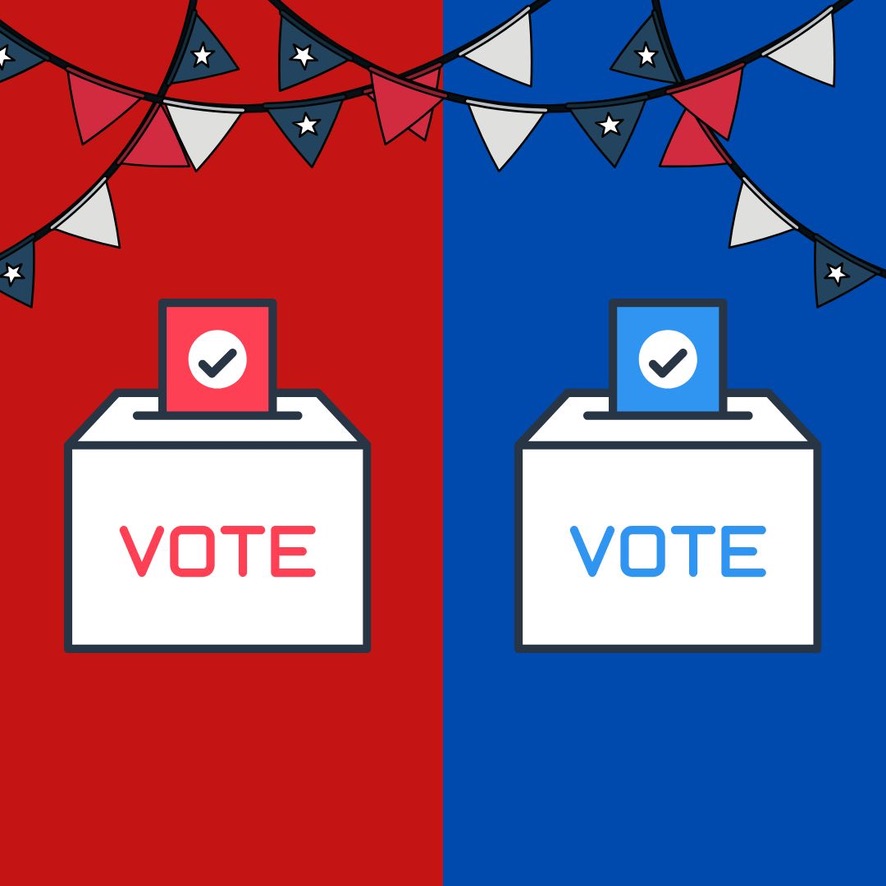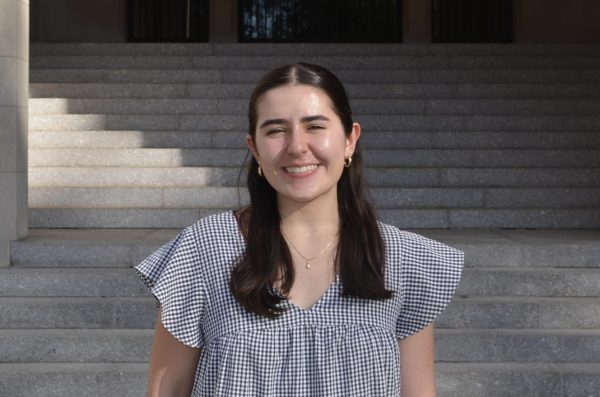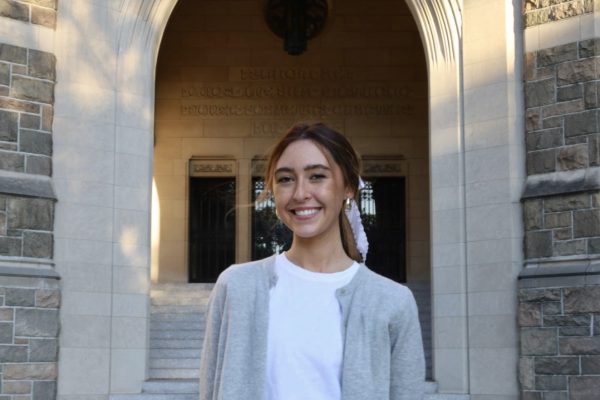By Dakota Calcaterra
Vice President | Fordham College Republicans
History will likely not remember 2024 as a year dominated by the Israel-Palestine conflict, abortion, inflation and illegal immigration. It will be studied as the moment when our country’s politicians embraced darker, harsher rhetoric and began to fear for their safety. This is the campaign where our politicians rip off their masks of civility and display the ugliness that lies beneath.
This is not merely an apocalyptic vision; both parties have hurled accusations of extremism at the other. Insults and jabs that would have seemed unthinkable a decade ago have become normalized to a frightening degree, dominating the national discussion and plunging us into a culture war. The forced exit of President Joe Biden has been likened to a coup, and former President Donald Trump has been called a fascist more times than anyone can count.
The weakest moment in the campaign was surely the debate between Trump and Vice President Kamala Harris, a tour-de-force in the art of political finger-pointing. It did not seem to have moved many people either; while there have been brief moments of clarity, the polls have failed to elucidate who has the advantage going into Election Day.
What is clear, however, is that our long-discussed descent into political polarization has transformed from an uncomfortable fact of life into an existential threat. Since the attempt on Trump’s life in Butler, Pennsylvania, the campaign has resembled a civil war more than a civil debate. With each of the three assassination attempts on Trump this cycle, there has been a worsening sense of permanence, that this may just be what politics are now. There are many Democrats who feel the same way — if we fail to reconcile soon, it will be too late.
For most of our life, politics have functioned as part reality television, part gladiatorial combat. The idea of a good-faith discussion of policy issues is utterly unthinkable at the moment, and for too long, a revulsion toward compromise has poisoned any attempts at actual change. Perhaps we can eventually move past this and somehow find common ground again. But the past few months have left us bereft of any confidence in such a resolution. 2024 has not been a campaign of hope, but rather intense antagonism that threatens the future of our country. Unless we move past the desire for politics as a blood sport, we fear that history will see this year as the gash that never healed.
By Caroline Lehman
Secretary | Fordham College Democrats
This election cycle has been quite the rollercoaster for the American public, even amidst the last 10 years of intense political polarization and turmoil in our country. It will be the most consequential election of my lifetime — either ending with the first female and second Black president of the United States or a convicted felon that incited a violent insurrection during the certification of the last presidential election.
Before Vice President Kamala Harris became the Democratic nominee for president, I was dreading this year’s election. Although I’m a politically active person, I found myself uninspired, unmotivated to campaign and, most importantly, afraid.
Like many other Democrats, I worried about President Joe Biden’s electability and had my own concerns regarding his mental fitness to serve and divisive policies related to the Israel-Palestine conflict.
My anxieties were not soothed after being placed at the forefront of fielding these same sentiments from the American people while taking hundreds of calls during my Capitol Hill internship at the beginning of the summer.
Having met Harris in early June, I knew she was not only the logical choice, but the one the Democratic party and America as a whole needed. Beyond her political savvy, her charisma, joy, vision and trailblazing identity are so refreshing in America’s current political climate.
I have remained optimistic and motivated all semester, helping host events and doing voter outreach with the Fordham University College Democrats. I don’t know how this election will turn out, but I’m hopeful that the American people will do the right thing and vote not for a hateful alleged fascist, but instead to protect our rights and freedoms, for joy, for Kamala Harris. I’ll never forget the pride I felt casting my first-ever presidential vote for a woman.
By Daniel Sponseller
President | Fordham College Democrats
Vice President Kamala Harris entering the race sparked a much-needed flame in the presidential race. Her campaign has had an air of energy, optimism and sheer joy, offering voters a simple adage: “We are not going back.” She has set forth concrete plans, not just “concepts of a plan,” that will have a substantial impact on working-class people. These include expanding healthcare access, building affordable housing, banning price gouging and creating a tax structure that will ensure that working people will not be penalized for not being billionaires. These plans have been rallying calls for progressives, and the fact that a major presidential candidate is finally embracing all of these plans is so satisfying.
My confidence in Harris’ ability to win has stemmed from her tangible, progressive solutions. Former President Donald Trump, on the other hand, has become sort of a one-issue candidate; every problem, from the environment to rising costs and corporate greed, is somehow the fault of immigrants. At the end of the day, people face complex problems, and solutions are required that will actually alleviate these issues. Mass deportations and fear-mongering about immigrants not only are overly simplistic solutions, but they will completely fail in making anyone’s lives substantially better. Voters are becoming increasingly aware of this, making Trump seem not just out-of-touch, but painfully one-note.












































































































































































































